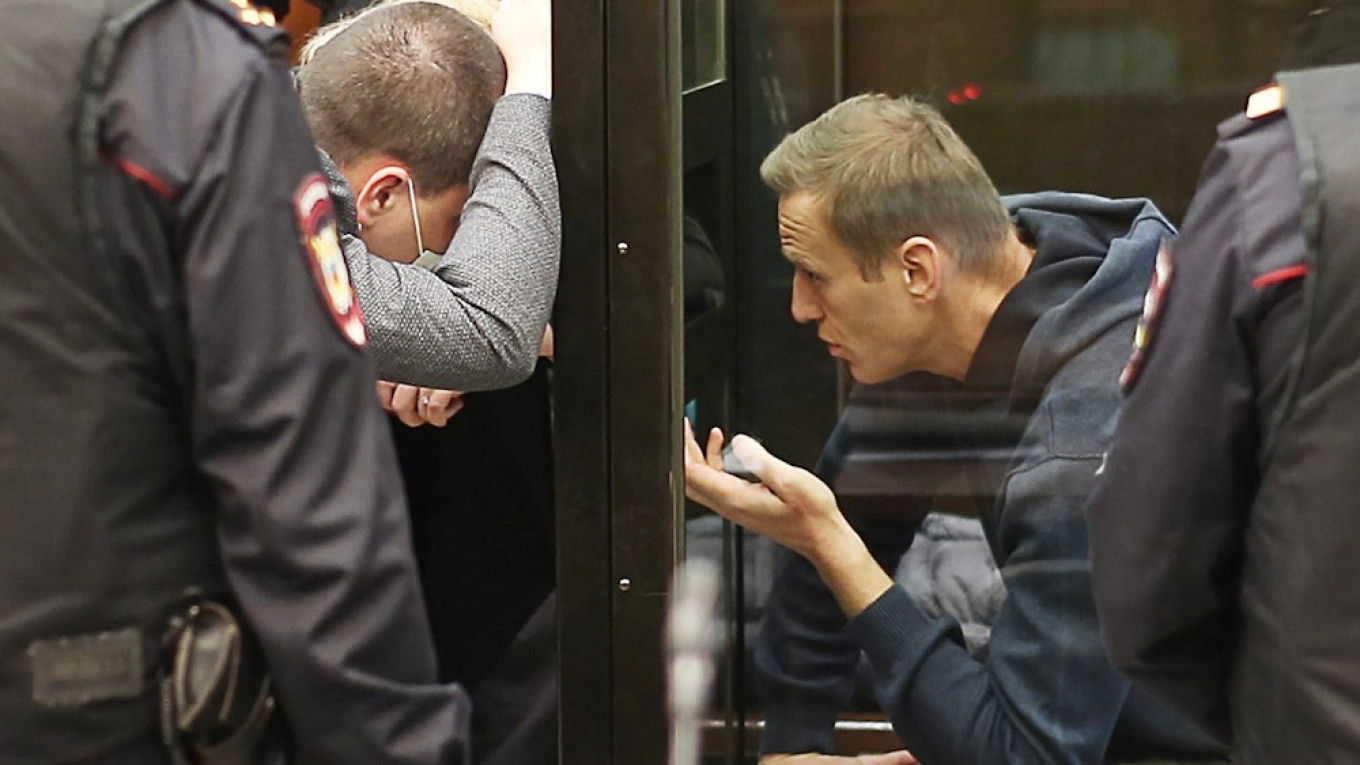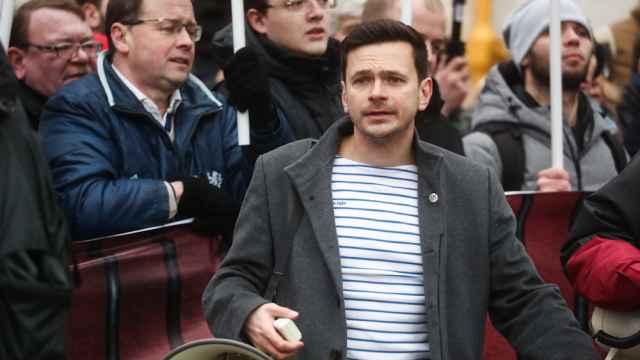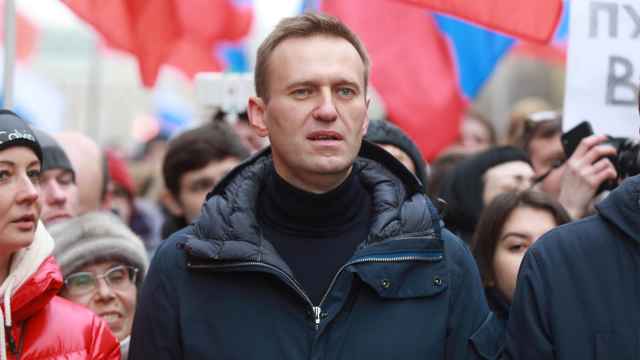The crackdown on Alexei Navalny is striking not only for its cruelty and immorality, but also for its sheer stupidity. The ruling regime — that is constantly digging itself into an ever-deeper political hole – now seems intent on burying itself altogether. It is bad enough that each new manifestation of lawlessness and abuse only swells the protestors’ ranks and hardens their resolve, but it also destroys private initiative, the very foundation of economic growth.
Although there is nothing to stop a person from living in Russia, there is precious little reason left to do business here — unless, of course, that business is with, for or by the authorities.
Of course, no one can say how much the sentence against Navalny will cost the country’s GDP, and very few entrepreneurs could put a number on how it affects their business in terms of diminished demand, higher costs and lower income. As it has always done, the regime is lashing out at anyone who dares challenge it, essentially turning its formidable punitive machine — from the Federal Security Service to the courts — into a political police force.
Still, most businesspeople realize that the Navalny case will adversely affect their bottom line because money flows best when the country runs smoothly, quietly and in a predictable pattern.
And when the government is willing to provoke an internal political crisis in the middle of this century’s most severe global crisis, during a pandemic that is rattling the national economy, it is clear that stability and economic growth will not be coming anytime soon.
Of course, this is not news, but every such reckless act by the country’s leaders only further undermines the foundations of business, causing even greater financial losses to ordinary citizens who had already seen their incomes shrink for many years. It destroys any hope for steady development — the key to investment activity. It destroys trust in the government, in institutions, and in each other, splitting the entire country into those who are “for” or “against.” And it is this key economic asset — trust — that Russia so lacks.
In fact, it is possible to estimate how much of a “hit” Russia’s GD P is taking now. For example, a study that the Higher School of Economics Centre of Development Institute conducted in 2018 found that in countries where the level of trust rose by 10 percentage points (all other things being equal), GDP was 21% higher.
The economists explained that the lower level of trust in Russia was responsible for approximately one-tenth of the gap between the average per capita GDP in this country and the UK, Germany and the United States.
But more than destroy trust, the authorities are sowing fear. Many businesspeople with no connection whatsoever to the government or the current political confrontation have told me that they have an “escape plan” in case the authorities come for them, for whatever trumped up reason.
They contend that modern Russia is even more dangerous than the Soviet Union was. The crackdown on Navalny only deepens those fears — as did the case against our colleague, Ivan Safronov, the espionage charges brought against respected scientists and the charge that businessman Alexander Khomenko is a “sponsor of the Anti-Corruption Foundation” headed by Alexei Navalny.
Fear robs us of confidence in the future. Can you expect a business to invest in a future in which it has no confidence? Can the authorities expect citizens to plan for a future that the government itself has repeatedly denied them?
And can citizens expect their leaders to display moral strength when, instead, it shows itself to be agonizingly weak? President Vladimir Putin’s attempts to “pull an ace out of his sleeve” — by having billionaire Arkady Rotenberg suddenly come forward and claim that he, not the president, owns the opulent palace in Gelendzhik — makes the regime look even more confused and out of control.
The ruling authorities have shown that they know how to do only two things: repulse or attack, destroying anyone or anything that mounts even the slightest opposition. And, by crushing the current opposition, the Kremlin compels less organized and less principled opponents to take their place. The regime systematically provokes more protests, radicalizes them and turns its members into inveterate enemies. This, in turn, forces leaders to respond still more aggressively, making the situation in Russia even more unstable and uncertain.
The result: ever more businesspeople are formulating escape plans — if not from the country, then at least from business.
This article was first published by our partner outlet Vtimes
A Message from The Moscow Times:
Dear readers,
We are facing unprecedented challenges. Russia's Prosecutor General's Office has designated The Moscow Times as an "undesirable" organization, criminalizing our work and putting our staff at risk of prosecution. This follows our earlier unjust labeling as a "foreign agent."
These actions are direct attempts to silence independent journalism in Russia. The authorities claim our work "discredits the decisions of the Russian leadership." We see things differently: we strive to provide accurate, unbiased reporting on Russia.
We, the journalists of The Moscow Times, refuse to be silenced. But to continue our work, we need your help.
Your support, no matter how small, makes a world of difference. If you can, please support us monthly starting from just $2. It's quick to set up, and every contribution makes a significant impact.
By supporting The Moscow Times, you're defending open, independent journalism in the face of repression. Thank you for standing with us.
Remind me later.






